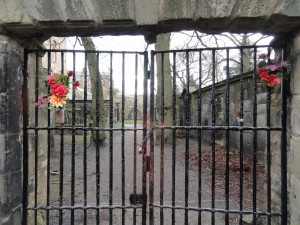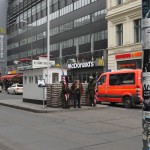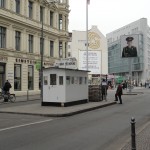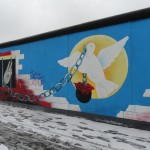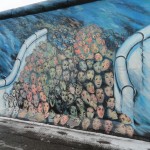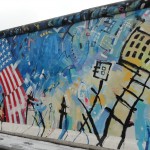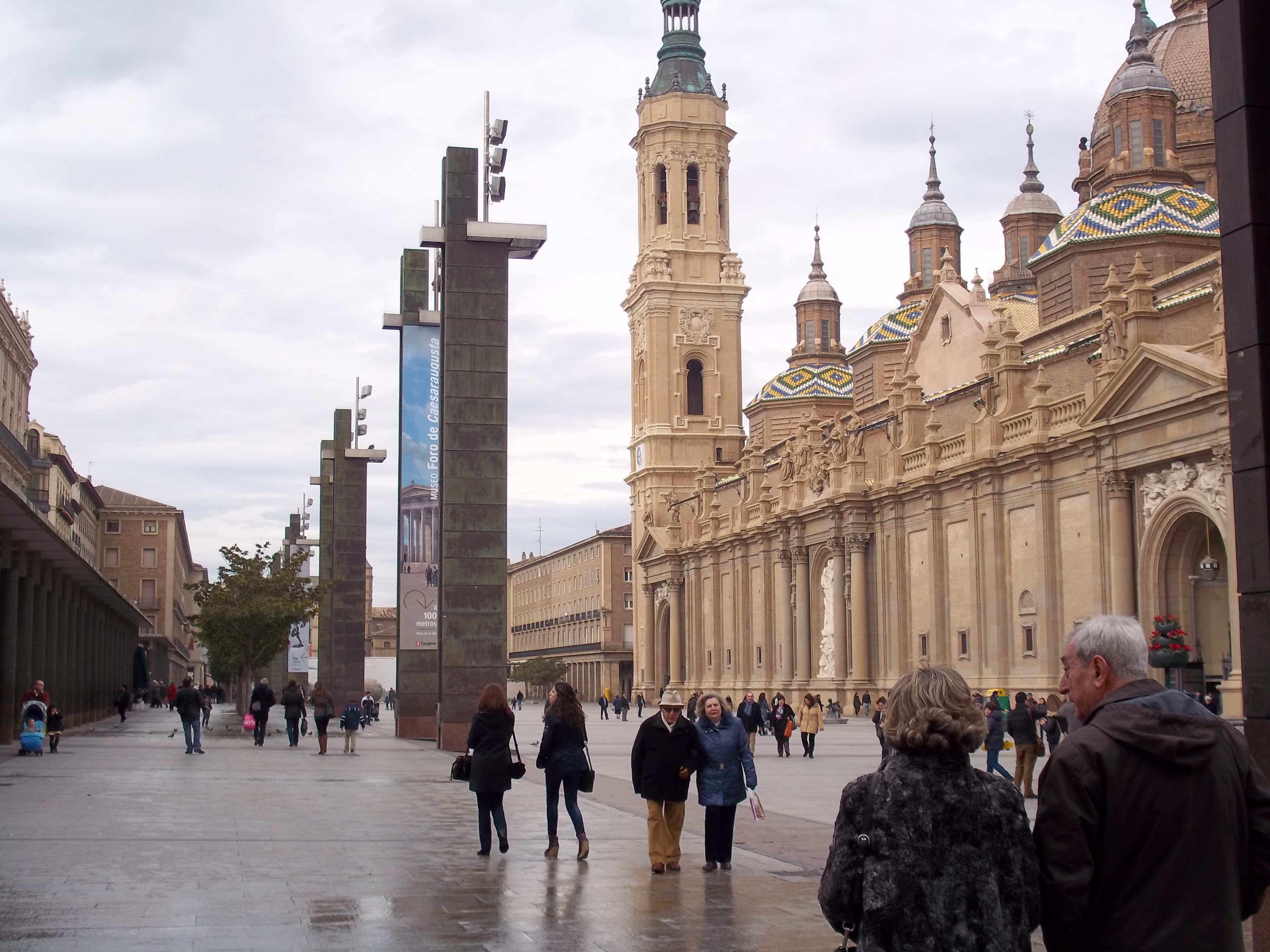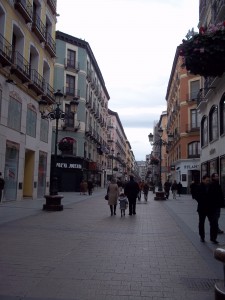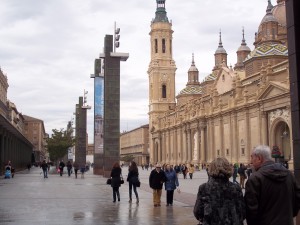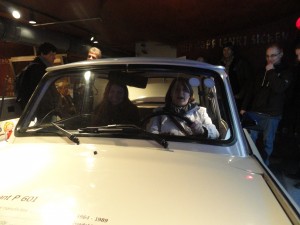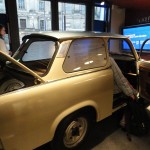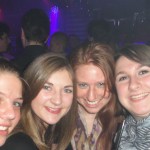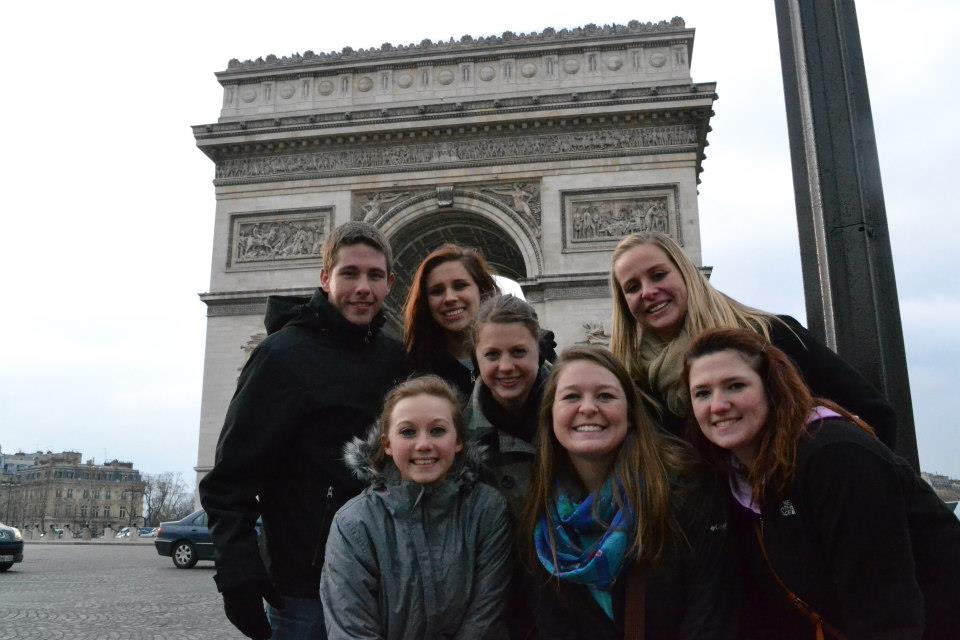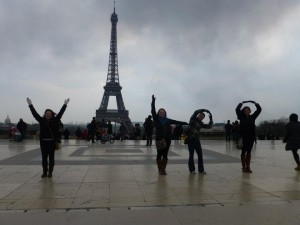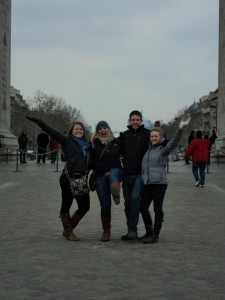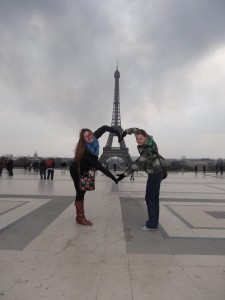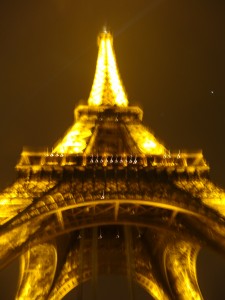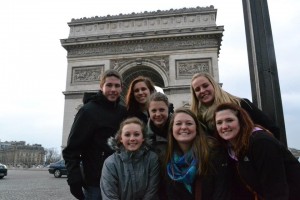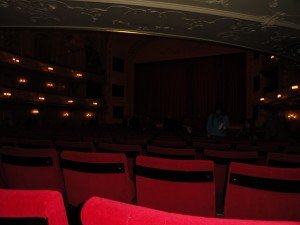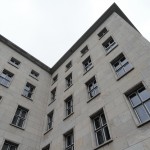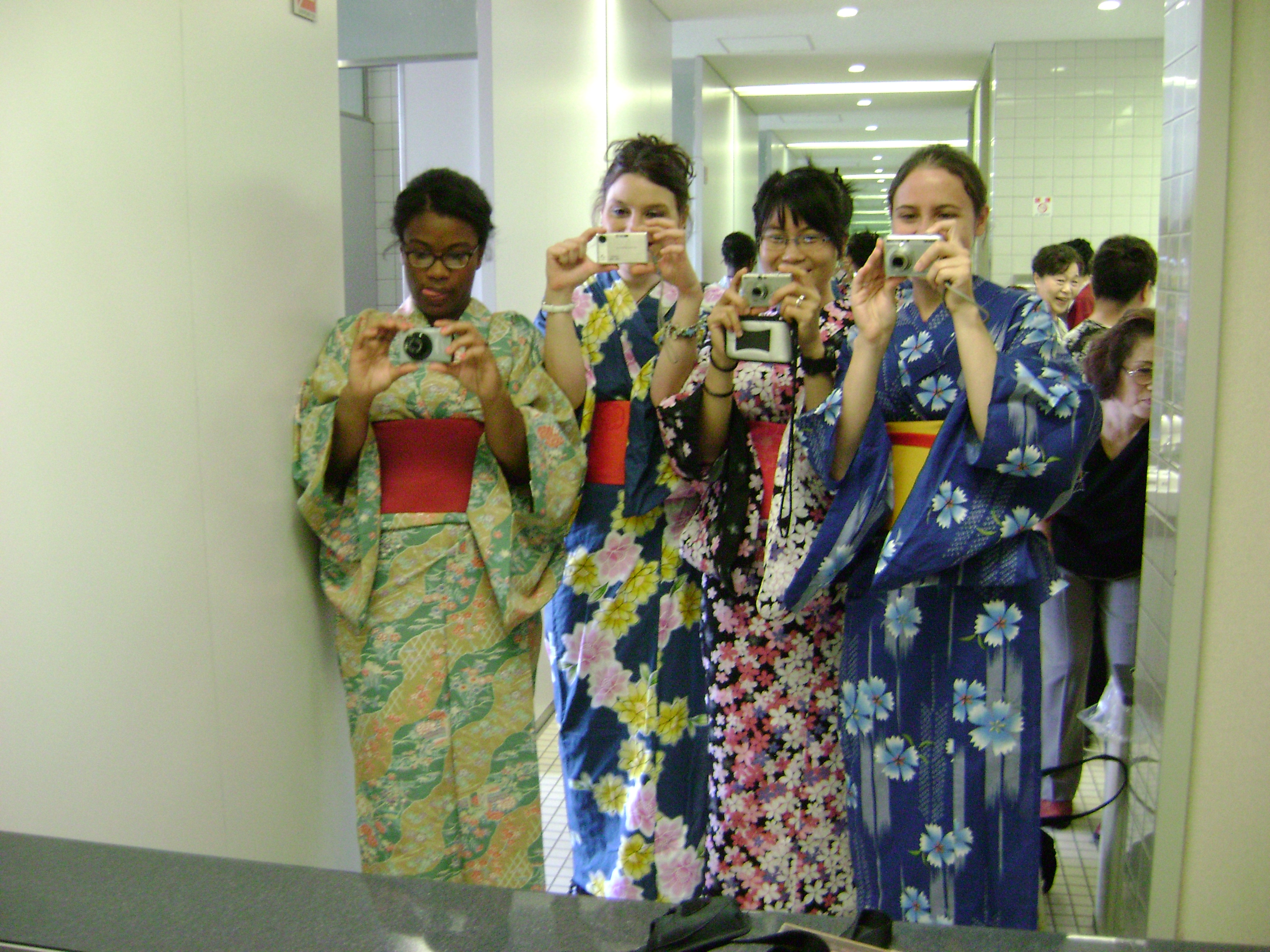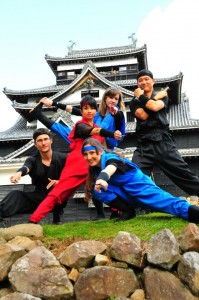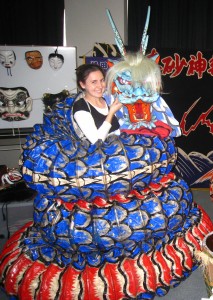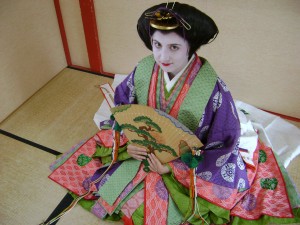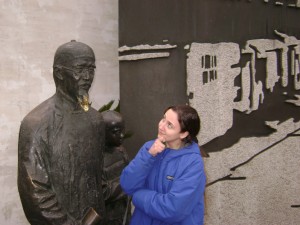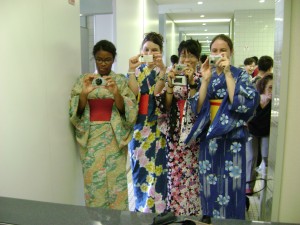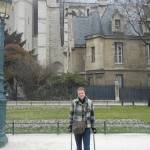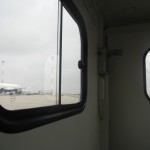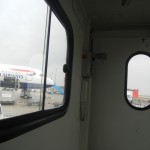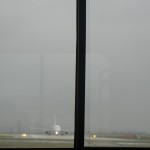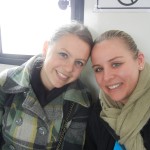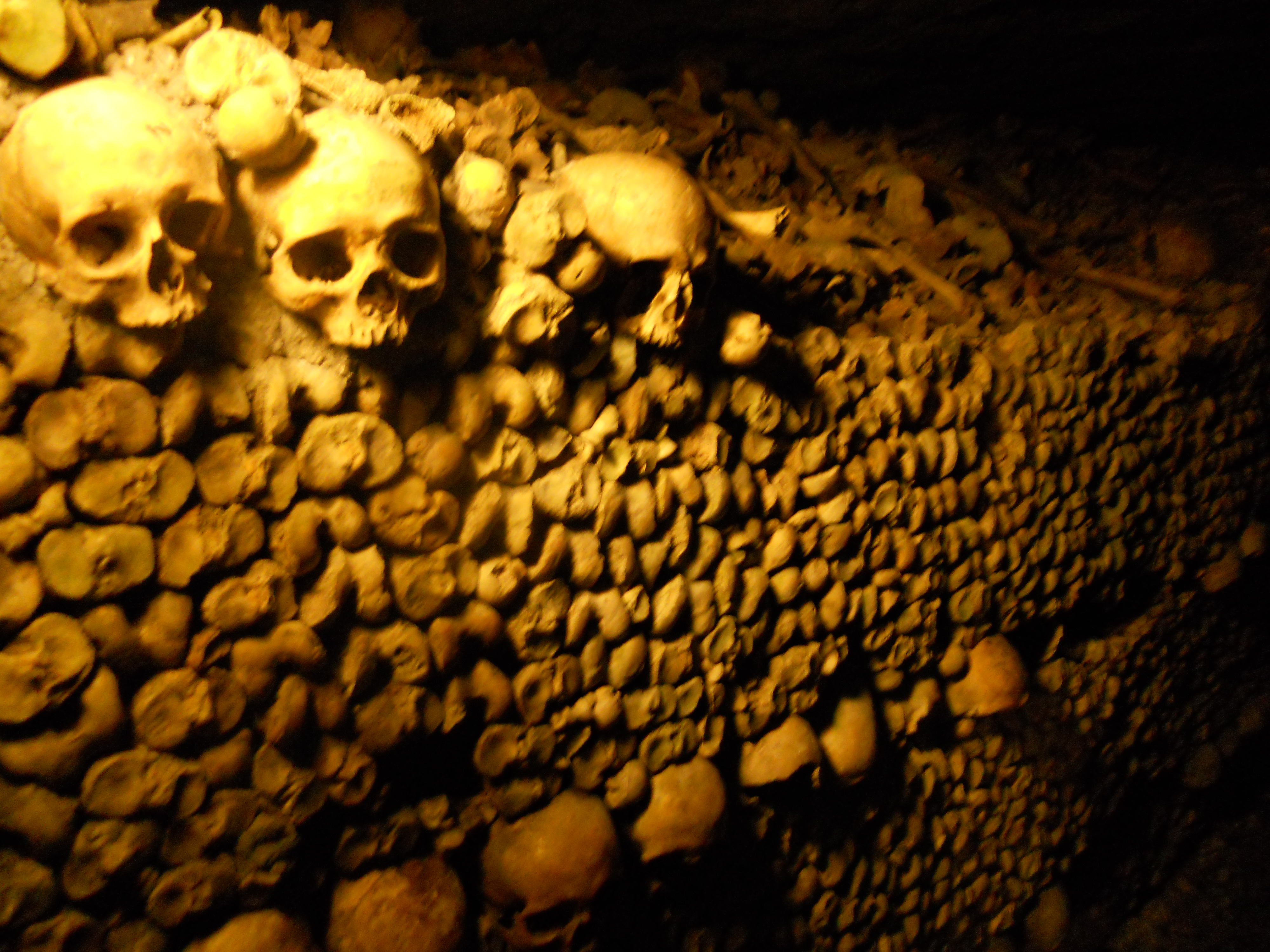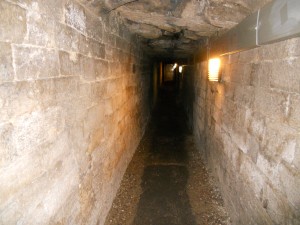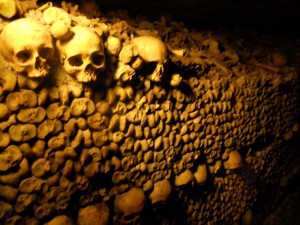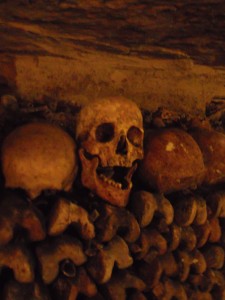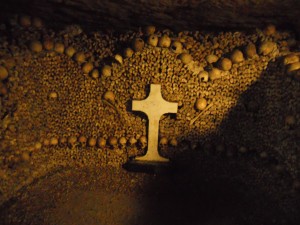Since we’ve been here, I don’t think that many of us, if any, and definitely not myself, have experienced any sense of “culture shock”. This past weekend however, seven of us went to Paris and Versailles in France and definitely experienced culture shock at its finest. This weekend was the first time that any of us had gone to a country that did not have English as its primary language. We actually decided to go to the place where many people refused to speak English and had a group making sure people did not speak it, making it much more difficult to navigate around the city.
Something we have been very good at taking advantage of are the free tours that are offered in many countries. We did one in Edinburgh, Dublin and now Paris as well. These tours give a great layout of the city, touching on many of the main places, allowing us to be able to later navigate ourselves around. Our tour guide also gave us a lot of helpful hints like which museums would be free to us and where are good photo taking opportunities. He also knew a lot of random facts about the city that were very interesting to know. Such as if there is a statue of someone on a horse and the horses’ front left hoof is up and back right hoof is up it means that the person riding the horse died of unnatural causes. Whereas if both of the front hooves are raised it means the person died heroically in battle.
On the tour we started at St. Michael’s Cathedral, went past Notre Dame to The Louvre where we saw the “invisible” pyramids and the very UNimpressive Mona Lisa, then the hugely symmetrical garden outside the Louvre, the Arc de Triomphe which is at the end of the most famous street in Paris, the Champs Elysees, and surrounded by the most dangerous round-a-bout, and of course, The Eiffel Tower. We learned more fun facts along the way, such as the faces carved in The Pont Neuf bridge is from a very drunken night King Louis XIV had with his closest friends. He had an artist draw all of the faces of his friends towards the end of the night and when he saw them the next morning, he thought it would be a fun idea to have all of the faces carved along the bridge forever. Many of the faces are quite a sight to see and are very hilarious. Our tour guide referred to them as the first Facebook tagged pictures.
Since we did the tour on Friday, we were able to get ourselves orientated with the town from the beginning. After seeing the Arc de Triomphe, we took a rickshaw to the Eiffel Tower, going around the crazy dangerous round-a-bout along the way that has a car crash once every seventeen minutes. Once at the Eiffel Tower, it was a sight to see. We went up to the top the next night and, of course, it was snowing. As cold as it was, it was awesome to see and be at the very top of the tower, 281m in the air. Though we couldn’t see too far in the distance because of the whiteness, it was still definitely worth it.
On Saturday morning, we did a tour of Versailles. Since it was so cold, we toured the palace instead of the gardens but afterwards went and ventured through the gardens. They were quite beautiful there and the whole estate is incredibly huge. I can only imagine how breathtaking it would be to see in the summer when all of the fountains were flowing and gardens were blooming. Next time I head to Paris, it will have to be in the summer. The trip was still great though because we were able to see everything and learn about all of the King Louis’ and their history as well as the history of the palace and its expansion throughout the years of the kings.
Norte Dame is another place that I would highly recommend to anyone to go and visit. We saw it many times on our way to and from our hostel, but on Sunday morning we went to a mass at Notre Dame and saw the beautiful stain glass windows all around. The mass was in French so we couldn’t understand too much of the homily but since it was a Catholic mass, I could follow most of what was happening.
The language barrier was very difficult at times, though having a bigger group of us did help because we could try to decipher what was written or being said. One of the hardest parts of the language barrier for me, personally, was when it came to ordering food. Most of the places had menus only in French, and the French did not like it when Americans wanted them to translate things for them, so trying to figure out what to eat was a bit of a project at times. A lot of places that were more fast food like did have pictures up in the windows which allowed us to at least see what we would be getting and try to figure out what might be on it. At one cafe we stopped at for lunch after our tour, Zach was trying to ask for the check and instead ordered a 8.50 euro dessert. That just goes to show how difficult the language barrier can be. One of the most successful places we found to eat was at a little crepes shop just down the road from our hostel. Crepes in France are significantly better than anywhere else in the world. There are all kinds, from sweet Nutella crepes to savory egg, bacon and cheese creeps, as well as crepes with lettuce, tomatoes, eggplant, onions and other toppings we still couldn’t exactly translate. But everyone was delicious. Nothing else can compare.
While in Paris, we really did not interact much with the French. At one point when we needed to ask where a street was located, we spelled it out on a phone, knowing we could never pronounce it correctly, and showed it to a bartender. He pointed in one direction and then a man sitting at the bar told us the bartender was lying and pointed in the opposite direction. I suppose we couldn’t be too upset though because I know plenty of people back home who like to mess with those who are lost. We did finally find our way, but being lost in Paris at night in the cold is never really all that fun.
There was one other instance in which the language barrier really threw us for a loop. We were on a bus heading from the Eiffel Tower to The Louvre when all of the sudden, the bus driver stopped and announced something to everyone in French. At that stop, half of the people got off the bus and the other half stayed on. We exchanged confused looks with each other but had no clue what to do. I went up to a woman who seemed to be translating for another woman and the bus driver. After a quick word with the woman, we learned that there was a street that was closed, so the bus would not be making all of the necessary stops, meaning we needed to get off as quickly as possible because we were now going in the wrong direction. From the stop we hopped off at, we used the maps on the bus stops to figure out where which way we needed to walk. We would stop at each bus stop, checking to make sure that we were going the right way. Once we hit the river, we were golden. Anytime you are lost in Paris, just make sure to make it to the river because from there you can find anything.
This weekend was such a blast and better than I ever expected it to be. I was never really all that excited to go to Paris. I knew they hated Americans and never really saw the thrill in the Eiffel Tower. However, after this past weekend, I can honestly say I have fallen in love with the city. It was so amazing, and though I am glad to be back where English is spoken, I will miss it and do want to go back again one day.
-
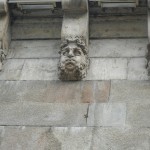
-
The faces on the bridge
-
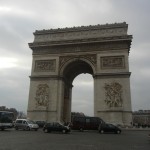
-
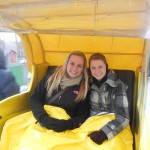
-
In the rickshaw
-
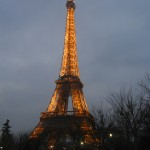
-
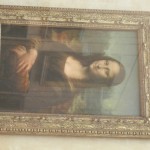
-
UNimpressive
-
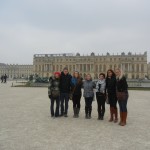
-
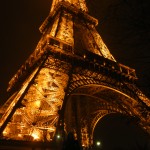
-
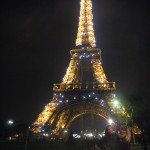
-
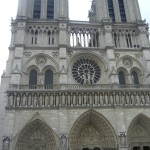
-
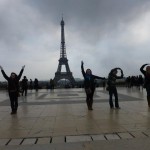
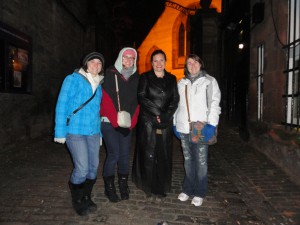 e could buy tickets for the next day.
e could buy tickets for the next day.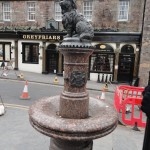 out Greyfriar’s Bobby, a dog that most believed had sat on his master’s grave for fourteen years. It turns out that he had sat on the wrong grave the entire time (sorry to ruin the story for you). We also learned that there are only a couple of hundred gravestones in the cemetery, but there are over 1200 bodies because during the time of the black plague the bodies were being dumped into the cemetery. There were so many bodies that where we stood was a hill but in earlier times it had been a valley!
out Greyfriar’s Bobby, a dog that most believed had sat on his master’s grave for fourteen years. It turns out that he had sat on the wrong grave the entire time (sorry to ruin the story for you). We also learned that there are only a couple of hundred gravestones in the cemetery, but there are over 1200 bodies because during the time of the black plague the bodies were being dumped into the cemetery. There were so many bodies that where we stood was a hill but in earlier times it had been a valley!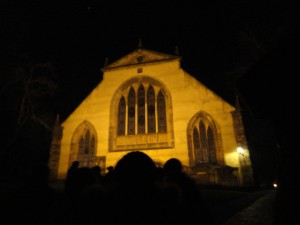 the covenanters were put into an outdoor prison during the winter months. The tops of the prisons were off and so they could get snowed and rained on. The prisoners had to lie down the entire time and if they moved they would be shot. The man that ran the prison was named “Bloody” Mackenzie.
the covenanters were put into an outdoor prison during the winter months. The tops of the prisons were off and so they could get snowed and rained on. The prisoners had to lie down the entire time and if they moved they would be shot. The man that ran the prison was named “Bloody” Mackenzie.